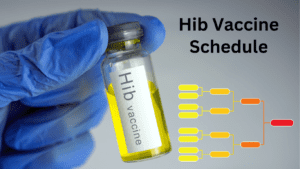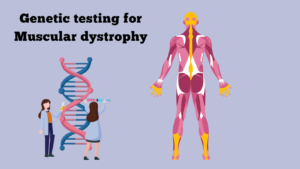Genetic testing for Muscular dystrophy
Genetic testing for muscular dystrophy is a powerful tool that plays a vital role in diagnosing, understanding, and managing this group of inherited muscle disorders. Muscular dystrophy refers to a collection of genetic conditions characterized by progressive muscle weakness and degeneration. There are several types of muscular dystrophy, each caused by mutations in specific genes. Genetic testing helps identify these mutations, providing valuable information for accurate diagnosis, prognosis, and genetic counseling.
Introduction to Muscular Dystrophy:
Muscular dystrophy is a group of genetic disorders that affect the muscles and cause progressive weakness over time. These conditions result from mutations in genes responsible for muscle structure, function, or regulation. The severity, age of onset, and affected muscles vary depending on the specific type of muscular dystrophy.
Role of Genetic Testing:
Genetic testing is a fundamental tool in diagnosing muscular dystrophy. It involves analyzing a patient’s DNA to detect mutations in the genes associated with the specific type of muscular dystrophy suspected. The two primary methods of genetic testing are DNA sequencing and deletion/duplication analysis.
Types of Muscular Dystrophy and Associated Genes:
There are several types of muscular dystrophy, each linked to specific genetic mutations. Some common types include:
- Duchenne muscular dystrophy (DMD): Caused by mutations in the DMD gene on the X chromosome.
- Becker muscular dystrophy (BMD): Also caused by mutations in the DMD gene, but typically less severe than DMD.
- Myotonic dystrophy type 1 (DM1): Caused by a repeat expansion in the DMPK gene.
- Facioscapulohumeral muscular dystrophy (FSHD): Associated with a deletion in the D4Z4 region on chromosome 4.
- Limb-girdle muscular dystrophy (LGMD): Caused by mutations in various genes, depending on the subtype.
Diagnostic Process:
Genetic testing is often part of the diagnostic process for suspected muscular dystrophy. The evaluation may start with a physical examination, family history assessment, and clinical evaluation. If muscular dystrophy is suspected, genetic testing is ordered to confirm the diagnosis and identify the specific type.
Pre-symptomatic and Carrier Testing:
Genetic testing is not only valuable for diagnosing affected individuals but also for identifying carriers and predicting the risk of developing the disease in asymptomatic individuals with a family history of muscular dystrophy. For example, carrier testing can be crucial for females who have a family history of DMD or BMD, as they may carry the genetic mutation but not exhibit symptoms.
Prenatal Testing:
In families with known mutations for specific types of muscular dystrophy, prenatal testing can be performed to determine if the unborn child has inherited the mutation. Prenatal testing allows families to make informed decisions about the pregnancy and plan for the future.
Prognostic and Therapeutic Implications:
Genetic testing results can provide important prognostic information. For example, in DMD, the type of mutation detected can indicate the severity of the disease and help anticipate disease progression. Additionally, genetic testing plays a role in the development of targeted therapies and personalized treatment approaches for some types of muscular dystrophy.
Genetic Counseling:
It is an essential component of the genetic testing process. Genetic counselors help individuals and families understand the implications of test results, discuss inheritance patterns, provide emotional support, and guide them in making informed decisions about family planning and medical management.
Conclusion:
Genetic testing for muscular dystrophy is a crucial tool for diagnosing, understanding, and managing these complex muscle disorders. It allows for accurate diagnosis, early detection of carriers, prenatal testing, and informed decision-making for affected individuals and their families. With ongoing advancements in genetic research and technology, genetic testing continues to play an increasingly significant role in improving the lives of those affected by muscular dystrophy.
Follow us:

More to Read:








